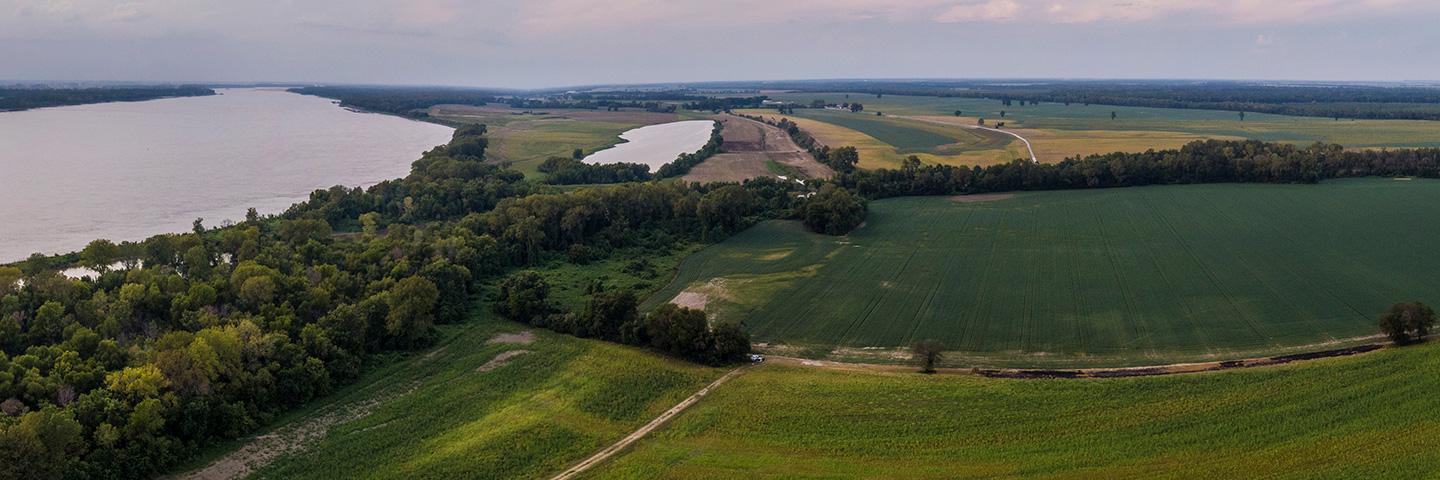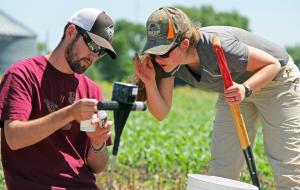NRCS Delivering Climate Solutions through the Inflation Reduction Act

The Inflation Reduction Act of 2022 represents the single largest investment in climate and clean energy solutions in American history.
By Terry J. Cosby, Chief, Natural Resources Conservation Service
The Inflation Reduction Act of 2022 represents the single largest investment in climate and clean energy solutions in American history. It provides $19.5 billion from fiscal years 2023 to 2027 for climate smart agriculture through several of the conservation programs that USDA’s Natural Resources Conservation Service (NRCS) implements. Last February, NRCS announced it was making $850 million of those funds available in fiscal year 2023 for its oversubscribed conservation programs – the Environmental Quality Incentives Program (EQIP), Conservation Stewardship Program (CSP), Regional Conservation Partnership Program (RCPP), and Agricultural Conservation Easement Program (ACEP).
NRCS is well on its way to implementing IRA in fiscal year 2023, and we’re planning for 2024 and beyond. In past years, producer demand for conservation assistance through these programs has outpaced available funding. We’re excited that many producers can now benefit from this additional funding, and we’re preparing for the additional help they will need to implement these climate change mitigation practices.
Locally, we’re getting funding out to individual producers, and we’re improving and streamlining programs to make it easier to sign up.
- So far in fiscal year (FY) 2023, NRCS is ahead of historical rates in obligating financial assistance for conservation programs and has obligated more than 19,500 contracts, compared to an average of just over 12,000 at this same time over the last 4 years.
- Since announcing the availability of FY 2023 IRA funds in February, we have had over 10,000 applications for IRA in EQIP and CSP—and that number is growing every day. We’re currently receiving an average of 29 IRA applications per hour for CSP and EQIP combined.
Producers need to know that NRCS accepts applications for our conservation programs year-round. And, no matter when they apply, their application will automatically carry over for consideration in future funding cycles. We encourage producers to apply now so that they can take advantage of this opportunity for additional funding over the next few years. To receive consideration for the current funding cycle in FY23, producers should apply by their state’s program ranking dates.

We are already working with corn and soybean farmers in Iowa, and with small-scale, urban producers in West Virginia, to implement soil health practices that reduce emissions and enhance soil carbon sequestration. In Arkansas, we are working with rice producers to fund practices that reduce methane emissions, one of the most potent greenhouse gasses. In California we are working on forest health practices to reduce potential of catastrophic wildfires that would result in increased greenhouse gas emissions.
We expect to announce funding recommendations for ACEP soon. The national ranking date for ACEP closed on March 17, 2023, and we received over $174 million in request for the $65 million of available funding. And, as part of the ongoing effort to streamline our conservation programs, ensure that they are more convenient to utilize, and to help strengthen IRA implementation, we announced improvements to ACEP on May 9.
We’re planning to announce many new positions to help implement IRA over the coming years.
On May 5, we announced the first wave of this broader hiring effort – several new soil conservationist positions across the nation. These jobs are the first in a series of new NRCS positions to help producers develop conservation plans and implement conservation practices, including critical climate-smart practices.

We’re getting funding out to partners.
We are also getting funding out to partners through the Regional Conservation Partnership Program, a partner-driven program that leverages partner resources to advance innovative projects that address issues such as climate change. On May 19, we announced that applications were being accepted through August 18, 2023, for RCPP Classic and RCPP Alternative Funding Arrangements (AFA). Projects selected under this funding opportunity may be awarded through either Farm Bill 2018 or IRA funding, however applications for RCPP climate-related projects will receive priority consideration for IRA funding.
These and many other efforts are continuing in 2023 and beyond. NRCS will continue to keep partners and producers informed about new funding opportunities, recruitment efforts, partnerships available, and plans for IRA implementation in the years ahead.


